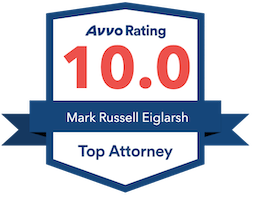Money Laundering
The crime of money laundering in Miami occurs when money made from illegal activities is made to appear as legitimately earned in order to avoid prosecution and/or seizure by the government. The crimes committed to earn unlawful proceeds includes, but are not limited to drug trafficking, human trafficking, fraud, extortion, etc.
Some additional examples of illegal actives in Florida that create funds and financial transactions used for money laundering purposes include:
- White-collar crimes
- Crimes involving property, like theft
- Cybercrimes
- RICO
- Exploiting an elderly or disabled individual
Furthermore, there are several different types of transactions which under Florida law can be categorized as money laundering. This includes to name just a few, sales, acquisitions, loans, cash gifts, wire transfers, bank deposits, savings, and currency exchange. Upon transferring a title for vehicles, real estate, or any type of property, this may also be known as money laundering as long as it has been carried out to cover illegal profits.
Money laundering laws exist as a way to punish companies and individuals that use financial transactions as a means of hiding the proceeds of any crime they participate in that is illegal in Florida. In certain cases, such allegations are closely tied with organized crime and/or racketeering investigations.
After the Bank Secrecy Act of 1970 was enacted by lawmakers, a mandatory reporting requirement was imposed for anyone engaged in cash transitions involving $10,000 or more. Also as a requirement of the act, folks with foreign bank accounts are required to report to the U.S. Government the existence of such accounts.
Based on Florida law, a money laundering conviction requires evidence that the defendant was carrying money or performing transactions intending to carry out any other criminal activity. There must be proof that the defendant did know that the property embroiled in a financial transaction came as a result of the proceeds of some sort of criminal activity.
The federal and state governments are searching for more cases of civil asset forfeiture. Seizures are soaring, and the government says it is because the shuttering of non-essential companies during COVID-19 has had a huge effect on money laundering schemes.
Some cybercrimes include the use of bitcoins to try and circumvent the conventional banking system by using this cyber-currency. Florida legislation also covers “virtual currencies” as a kind of “monetary instrument” to adhere to the Money Laundering Act in Florida.
Many virtual currency transactions would not be subjected to prosecution under this amended law, since proof of motive and information must justify the charge.
Laundering money cases are investigated in each judicial circuit by the local state attorney, or by a state prosecutor with the Florida Attorney General’s office. The bans on money laundering extend to all individuals, companies, and organizations that utilize financial transactions to conceal the proceeds of illegal activities.
The penalties for money laundering can be extremely severe. Typically the sentence one faces hinges upon the amount of money alleged to have been laundered. For example, if the amount involves $100,000 or more, the crime would be deemed a first-degree felony, punishable by up to thirty years in prison. If the amount is under $100,000, but more than $20,000, the crime is a second-degree felony, with a maximum of 15 years of incarceration. Finally, if the amount laundered is under $20,000 but more than $300, it’s a third-degree felony with a statutory maximum sentence of five years in prison.
In general, money laundering is known as a federal offense. Under the federal laws’ strictures, non-capital crimes such as money laundering will no longer be charged if the defendant has not been arrested within five years of the crime being committed. However, if the defendant is out of state, the State of Florida does have the option to toll the statute of limitations.
The general information provided above about money laundering crimes in Fort Lauderdale is meant for educational purposes only and is not a substitute for speaking directly with an attorney about the facts and circumstances of your case. Please call 954-500-0003 in Broward or 305-674-0003 in Miami to schedule a consultation with the Law Offices of Mark Eiglarsh.








